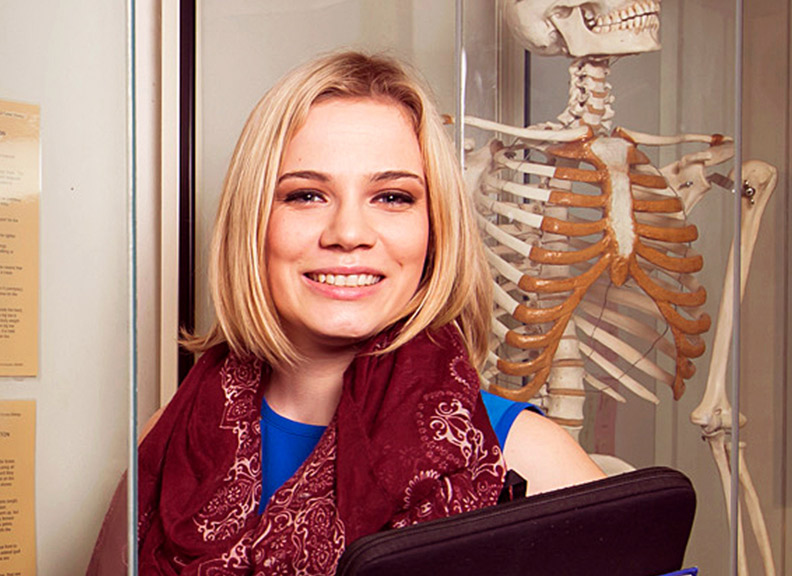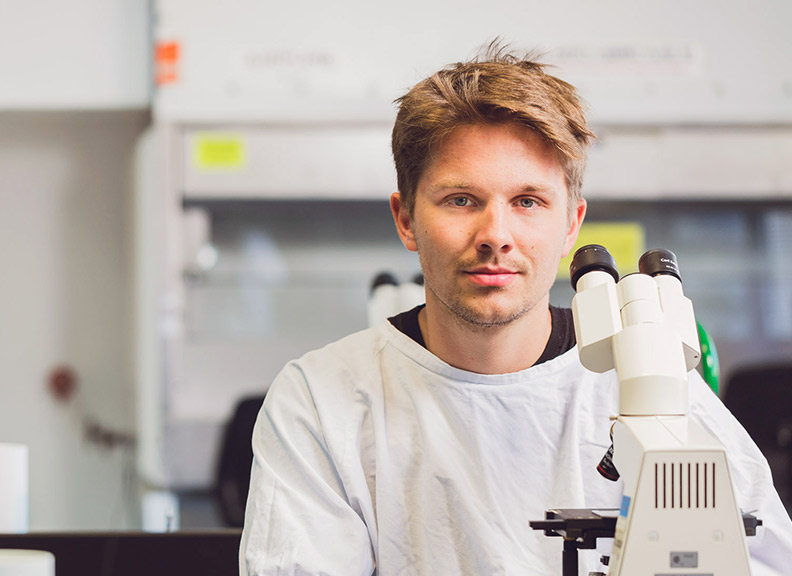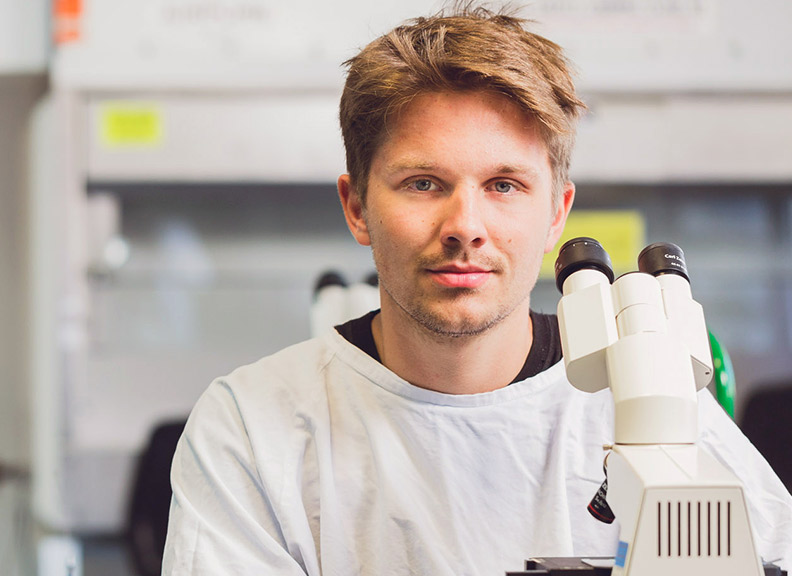Undergraduate
Biochemistry and Molecular Biology
Contact us
Address
Student Central
The University of Western Australia (M355), 35 Stirling Highway, Perth, Western Australia 6009
Telephone
131 UWA (131 892)
International
(+61 8) 6488 1000
Hours
Frequently asked questions
Events you may be interested in
Show more eventsCareers and further study
This course opens up a world of future study pathways and career opportunities.
Career Pathways
A bachelor’s degree in Biochemistry and Molecular Biology from UWA is highly recognised amongst employers. Career opportunities may include biotechnology, drug development, food production and quality control, fermentation industries and chemical production. Biochemists and molecular biologists find jobs in diagnostic laboratories in hospitals, veterinary health, toxicology and in broader public health. Opportunities beyond the laboratory include education, patent law and policy-making, as well as in agriculture and the environment, sales and marketing for medical, research and pharmaceutical industries. With their specialist knowledge of living systems, biochemists can work as journalists and science communicators. A degree in biochemistry and molecular biology is a starting point for specialised courses such as bioinformatics, synthetic biology or forensics. Many biochemists and molecular biologists choose to follow further study towards a higher degree by research, so that they can reach more senior positions in research and development, whether in academia or in industry.
To prepare you for these diverse career pathways, UWA’s unique degree structure provides you with the widest range of specialisation options amongst Western Australian universities. For example, it is possible to do the Biochemistry and Molecular Biology major with a second major in Chemistry, Microbiology, Genetics, Data Science, Neuroscience, Human Biology, or Population Health. You can use your personal interests as a basis for your choice of subjects to study, and, ultimately, to direct your career. Through the unique design of the UWA curriculum, a major in Biochemistry and Molecular Biology will enable you to become the next leader in biotechnology, synthetic biology, biomedicine or science communication.
Some international, Australian and WA-based companies and institutions include:
• Pharmaceutical companies (e.g. Pfizer, CSL, Abbvie, GlaxoSmithKline, EvansPetersen Healthcare)
• Biotechnology companies (e.g. Dimerix, PYC Therapeutics, Orthocell*, Novozyme, Life Cykel, Qiagen, Roche, Merck)
• Molecular diagnostics laboratories (e.g. Pathwest, Safe Work Laboratories)
• Biochemical/protein analytical laboratories (e.g. Proteomics International)
• Provisioners of scientific instrumentation (e.g. Thermo Fisher Scientific, Westlab, LabGear Australia)
• Research Centres (e.g. Commonwealth Scientific and Industrial Research Organisation (CSIRO), Telethon Kids Institute, Ingham Institute, Garvan Institute for Medical Research)
• Top-ranked universities around the world
Further Study
Fees and scholarships
Domestic Student Fees
For Commonwealth-supported places, student contribution amounts are charged by unit, based on area of study. For a fee estimate, go to the Fee Calculator and select “I want to price my units”. Fees are subject to annual indexation. Refer to the Handbook to identify the units required. More information on how fees are calculated.
Scholarships
Scholarships are available to students from a diverse range of backgrounds, including academic achievement, financial need, educational disadvantage, leadership and community service, artistic or sporting achievements, and being from a rural or remote area.
Cost of living
International Student Fees
Onshore international students are charged an annual course fee, charged per credit point at a rate dependent on the course in which the student is enrolled. Annual course fees are calculated based on an annual study load. Check the handbook to confirm the annual study load for your course.
Find out more about international student tuition fees and visit the fee calculator for the relevant course fees.
Fees are subject to annual indexation.
Scholarships
Scholarships are available to students from a diverse range of backgrounds, including academic achievement, financial need, educational disadvantage, leadership and community service, artistic or sporting achievements, and being from a rural or remote area.
Cost of living
Admission requirements
The University of Western Australia welcomes applications from international and domestic school-leavers. If you’re interested in studying one of these majors, find out the admission details below.
Admission requirements
English competency
English is the language of instruction and assessment at UWA and you will need to meet the English language requirements of the University to be eligible for a place.
Minimum overall IELTS score of 6.5, with no band less than 6.0.
How to apply
Apply through TISC
- Log in to the TISC website
If you’re a Year 12 student studying a WACE course at a WA high school or a pathway program, you are already automatically registered with TISC. - Select your preferences
You can choose up to six preferences when you apply through TISC. You should list your preferences in order from your most desired course onwards; this way you’ll have plenty of options to get into UWA. - Lodging your application
You’re almost there! After answering a few questions, you’ll need to make a declaration about your application. - Application processing fee
Your TISC application is lodged once you’ve completed the payment. For more information on fees and payments, visit the TISC website.
Course details
About the course
Quick details
- Available
- Perth (Crawley campus)
- Albany (Regional campus)
- Full-time
- Part-time
- On-campus
- Semester 1, Semester 2
- 15-30 hours per week
- Undergraduate
- MJD-BCHMB
- 3 years (BBiomedSc), 4 years (BBiomedSc[Hons])
You may also be interested in these courses
Course Structure
Our undergraduate degrees offer you a broad range of options allowing you to combine subjects in a way that matches your career goals and personal interests.
Popular combinations
Your degree options
This major is offered as a degree-specific, or first, major for these degrees. It is also offered as a second major in our other bachelor's degrees.


 Anatomy and Human Biology
Anatomy and Human Biology  Genetics
Genetics  Microbiology and Immunology
Microbiology and Immunology  Neuroscience
Neuroscience  Public Health
Public Health  Bachelor of Science
Bachelor of Science
 Bachelor of Philosophy
Bachelor of Philosophy
 Bachelor of Biomedical Science
Bachelor of Biomedical Science